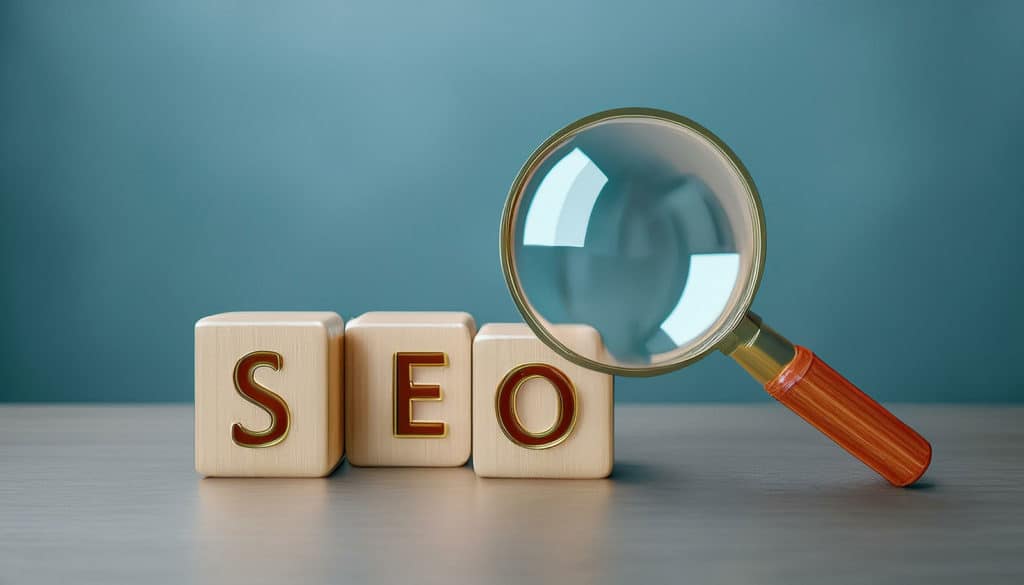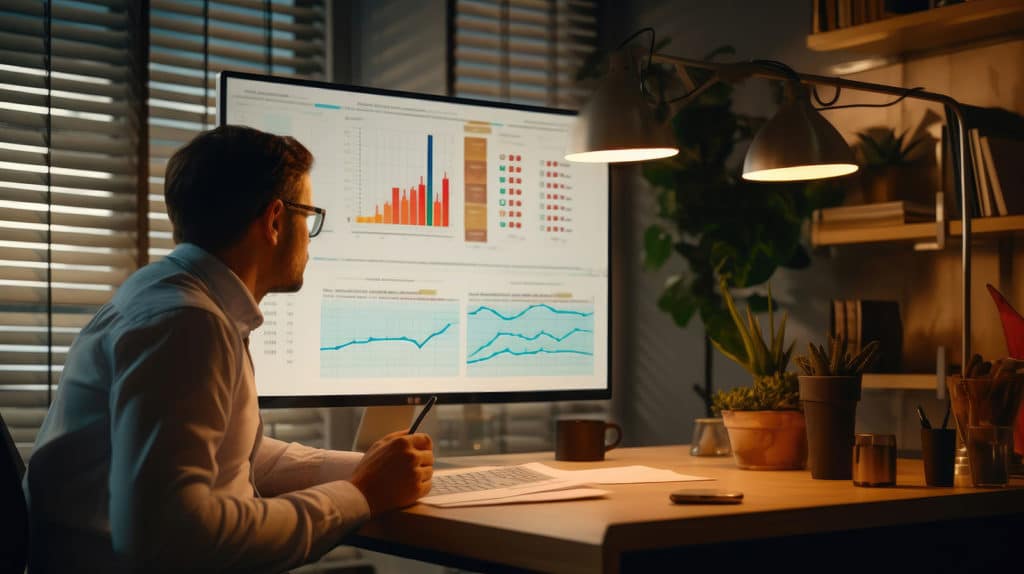The internet is a massive database of billions of web pages. These new pages pop up by the minute, making it difficult for a budding site to stand out.
As a business owner, what can you do to improve visibility for your E-commerce website?
For me, one of the easiest and most cost-effective starting points is SEO!
Today, I’ll teach you why you need to use SEO. I’ll discuss how SEO works beyond keyword research. Plus, I’ll touch on the best SEO tactics to follow in 2024.
Table of Contents
Understanding SEO
SEO or search engine optimization is the practice of making your website, social media, or product visible on search results.
With the huge amount of data online, search engines often need to sort information based on its relevance. SEO makes your website’s content easier for engines like Google or Bing to understand your content.
Once search engines index your content, it may show your website ahead of other websites when a customer makes a query. This is advantageous for business owners.
Therefore, many believe SEO is an effective marketing channel worth investing in.
Why Do You Need SEO?
There are several data-proven reasons why you need SEO for your website.
First, SEO is a vital marketing channel today because consumers are using search engines now more than ever. Surveys show that the usage of search engines increases by 20% each year.
Research by BrightEdge shows that SEO drives eleven times more traffic than organic social media. Additionally, 60% of marketers say SEO is the highest source of high-quality leads, with a 14.6% close rate.
Simply put, websites practicing SEO appear at the top of Google searches, resulting in more site visits and higher sales!
What SEO Does for Your Business
Below are just some of the advantages of practicing SEO.
- Top Rankings: SEO allows you to top search engine results pages or SERPs. It can directly impact how users find your content through online rankings.
- Increase Visibility: Your SEO efforts improve your online visibility in paid and organic listings. With 68.7% of all clicks going to the top three results, SEO ensures your content attracts visitors.
- Boost Credibility: Certain aspects of SEO can boost your website’s credibility. Good SEO not only improves site ranks. It can also build trust and make the algorithm prefer your website over others.
- Optimized User Experience: SEO encourages websites to have a clear structure. As a result, it makes site navigation smooth for your customers.
- Achieve Long-Term Success: SEO efforts take time to become effective. However, if you follow best practices, you can expect long-term success and increased conversions.
- Have a Competitive Advantage: Lastly, SEO helps you beat the competition in terms of organic search results. Despite its importance, 94% of all blog posts have no external links, making SEO an effective marketing channel.
What Happens Without SEO
Below are the downsides you may encounter without an SEO strategy.
- Less Visitors: Backlinko says less than 1% of users click beyond the first page of Google results. Without SEO, your website isn’t likely to appear on the first page.
- Zero-Clicks: Over 64.82% of people don’t click on websites after they input search queries. Without proper SEO, you won’t be able to attract readers to your site.
- Diminished Relevance: Google constantly updates its algorithms. With poor SEO, you may receive removal notices, leading to an 89% drop in search traffic.

The Relevance of Each SEO Component
Aside from the general advantages of SEO, its components are also relevant to your business. Here’s what you should know.
1. Keyword Research
Keyword research is the first step to every SEO strategy, and for good reason. Understanding it can have a lasting impact on your website!
For instance, knowing that long-tail keywords make up the majority of Google searches can give you an edge over competitors.
Keyword research plays a role in identifying your target audience. You can use it to learn what they’re searching for and figure out their interests.
On top of this, keyword research can also provide insights into what content you should be creating!
2. On-Page SEO
On-page SEO refers to the practices you use to improve individual web pages on your site. This could mean optimizing your meta tags, content, and internal links.
On-page SEO is important for online stores because it helps search engines understand what your page is all about. With it, you can encourage your readers to stay on your website longer, lowering bounce rates.
Regularly improving your on-page SEO will give you an idea of your user behavior. You can then use this information to improve your business’s strategies and offers!
3. Off-Page SEO
Off-page SEO refers to your SEO activities outside of the website. It includes your link-building, backlinks, and social media posts.
According to Backlinko, the pages with the highest number of backlinks often rank the best in Google. The high-quality links are a signal to search engines that your website is valuable.
To simplify, having better off-page SEO means your website will appear more authoritative. This builds your reputation, helping you garner customer trust and directly boosting your sales!
All About Technical SEO and Why You Need It
SEO isn’t simply about keyword research. Beyond that, SEO is all about creating a website that’s easy to navigate.
Technical SEO is how you build your website so that visitors have a seamless experience.
Today, nearly 70% of users head to the search bar once they land on your website. If it isn’t working, your customers will simply bounce.
As a website owner, optimizing your search engines will create a seamless user experience. Fortunately, you can use technical SEO tactics to improve the site speed and search bar. You can even make optimizations for mobile users!
The Importance of Crawling and Indexing
Crawling and indexing are the two actions taken by search engines in technical SEO.
Crawling is the process by which search engine bots navigate your website. These bots, or crawlers, follow links from one page to another, creating a map as they go along.
Indexing, on the other hand, is the process of storing the information crawlers collected. Search engines use this index to quickly lead customers to your page.
Without high-quality content, search engines may not index the information on your site. As a result, your business won’t appear in an organic search!

How to Improve Your SEO – 7 Essential Tips
Now that you know the importance of SEO, let’s discuss how you can help Google find your content. Here are my tips for improving SEO!
1. Learn About the Technical Requirements
According to Google Search Central, technical requirements are the information Google needs to make your web page appear on search results.
First, the Google bot should not be blocked, and the page should not be broken. It should have an HTTP 200 status code, and the page should have content.
2. Follow the Best SEO Practices
As per Google, there are a few key practices you can do to achieve the most impact on your search engine rankings.
Some of these include creating reliable website content and making links crawlable. Use words people search for and place them in prominent locations, such as titles, headings, and meta tags.
3. Have a Holistic Approach
Having a holistic approach to your marketing strategy is key to the success of your website. You can use other marketing channels to improve your online presence.
For example, you may attract potential customers and readers through social media. Additionally, you can boost organic traffic by investing in content marketing.
With holistic marketing efforts, you’ll improve your website traffic and become more visible to searchers!
4. Try Local SEO
If you have a local business, one of the best tips you can follow is to use local SEO techniques.
Starting SEO from the bottom is difficult, especially if your targeted keywords are saturated.
It helps to use keywords specific to your area for a better chance of reaching your target audience!
5. Practice Ongoing Optimization
Understand that SEO isn’t a one-time activity. It’s an ongoing process of optimizations, improvements, and updates.
Check your website for broken links regularly, and always review older content. Monitor your web page’s performance, analyze your data, and make adjustments as necessary.
6. Use Tools or Hire an SEO Professional
Don’t be afraid to use SEO tools from Google Analytics, Moz, or SEMrush. In addition, consider hiring a specialist in SEO services.
Doing these will make managing your website’s SEO easier. Remember, good SEO can significantly boost sales. Therefore, hiring a professional may return your investment!
7. Stay Adaptable
Lastly, keep updated on trends by attending courses or joining SEO groups.
As a website owner, you should be the first to know about algorithm changes. This way, your business can continuously adapt to emerging trends!
Conclusion
So, why do you need SEO in digital marketing? The short answer is it makes your brand visible to potential customers.
Having a good SEO strategy can boost your sales and raise your authority. Because of this, I believe it’s worth hiring SEO experts to help you get started!
